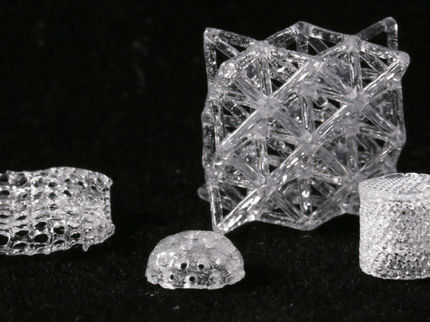Henkel: Series production of composite leaf springs
Advertisement
Lightweight construction technologies are steadily gaining ground in the automotive industry as the weight savings they achieve in modern cars help to significantly reduce fuel consumption and carbon emissions. Working with Benteler-SGL, Henkel has developed a process for resin transfer molding (RTM) of glass-fiber-reinforced leaf springs that uses a polyurethane matrix resin. Compared to conventional leaf springs made of steel, these composite leaf springs are up to 65 percent lighter.
With Loctite MAX 2, Henkel is offering a polyurethane-based composite matrix resin that cures significantly faster than the epoxy products usually employed for the RTM process. Due to its low viscosity, the polyurethane resin penetrates and impregnates the fiber material more easily and less harshly, thus enabling very short injection times to be applied. One special feature of Loctite MAX 2 is its exceptionally high stress intensity factor, which is a measure of toughness. This excellent toughness also has a positive effect on the fatigue behavior under load. Leaf springs in cars are constantly subjected to dynamic loading under driving conditions, so the use of flexible materials with a high fatigue tolerance considerably prolongs the life of such components.
Resin injection processes such as RTM predominate in the manufacture of automotive composites for mass-produced automobiles because they make it possible to control the curing reaction more reliably, either by adjusting the temperature or adding an accelerator. Furthermore, the risk of local overheating and resulting shrinkage is reduced, as the polyurethane resin Loctite MAX 2 generates less heat overall during curing than epoxy resins do. As a result, even thick components with many fiber layers cure fast. The RTM process is especially attractive for volume production of cars as fast curing of the matrix resin permits short cycle times to be achieved.
Most read news
Other news from the department manufacturing

Get the chemical industry in your inbox
By submitting this form you agree that LUMITOS AG will send you the newsletter(s) selected above by email. Your data will not be passed on to third parties. Your data will be stored and processed in accordance with our data protection regulations. LUMITOS may contact you by email for the purpose of advertising or market and opinion surveys. You can revoke your consent at any time without giving reasons to LUMITOS AG, Ernst-Augustin-Str. 2, 12489 Berlin, Germany or by e-mail at revoke@lumitos.com with effect for the future. In addition, each email contains a link to unsubscribe from the corresponding newsletter.





























































